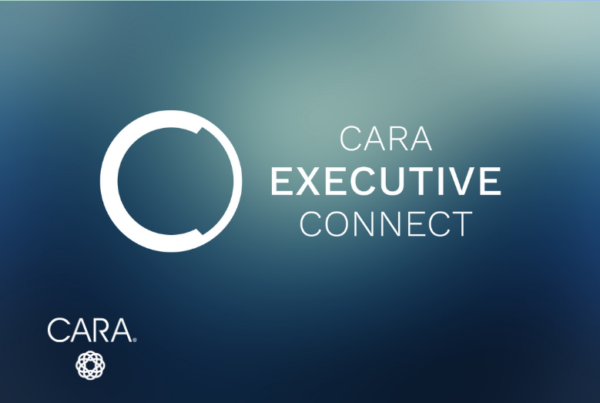
It’s finally springtime, March Madness is behind us, and baseball season is underway. But what do sports have to do with becoming a skills-based organization? Both great athletes and professionals evolve from rookies to seasoned pros through diverse experiences. Mastery and lifelong learning define them; they’re adaptable, resilient, and committed to growth. Like athletes, business leaders and their workforces must be flexible amidst technological advances and shifting markets. Today, forward-thinking leaders are transitioning companies to skill-based models, upskilling their employees for uncertain futures. Prioritizing this shift will be a game changer, ensuring long-term success and organizational sustainability in a dynamic world.
What is a Skills-Based Organization?
Most traditional work is organized around a job – from the job description to the interview process to role-based training to performance management. Employees are valued for their expertise in a role, and success is often measured by the depth of their knowledge of how to execute that role. And while expertise is undoubtedly important, it can quickly become obsolete in today’s fast-paced world. Just think how quickly the rise of AI is impacting job roles.
A skills-based organization focuses on cultivating and harnessing the abilities, competencies, and capabilities of its human workforce. Rather than relying on what employees know about a specific job role, the emphasis is placed on all the skills they have that can apply to solve a given workforce challenge. These kinds of organizations are on top of the trend of becoming more human-centered, and focusing on the whole person, their individual qualities and the value they can bring to the workplace. Skills-based organizations don’t define work just by job titles but recognize that people possess a diverse set of skills and that those skills can be applied in a myriad of ways.
Challenges to Consider
A shift towards a skills-based organization is large and complex. It won’t happen overnight and there will undoubtedly be roadblocks in your way such as finding the time, budget, and bandwidth to shift priorities and manage the organizational transformation. A big part of that shift will mean educating leadership on the differences and benefits between skills-training vs. job training. Leaders will need to understand and believe in the concept of being more broadly skilled vs. more narrowly skilled. This paradigm shift acknowledges that skills are not static; they can be developed, refined, and applied in various contexts, making employees inherently more valuable in an unpredictable business environment.
Overcoming Roadblocks
So, with roadblocks to consider—how about a plan to overcome them? Here are four key recommendations:
- Build Your Business Case: Talent, training and change leaders must build a compelling business case for why the shift to a skills-based organization is needed, emphasizing the benefits in both the short and long term.
- Start with the end in mind: What skills will your organization need in the future (1 year, 3 years, 5 years) to be successful and achieve your strategic goals? This will form the basis for your talent and learning strategies.
- Assess Current Skill Sets: Conducting a comprehensive assessment of current skills within the organization is essential to understanding where gaps exist and how to address them. This will be your roadmap.
- Align Leadership: To pivot like this, you must ensure there is alignment and support from the entire leadership team to drive the transition towards a skills-based organization
5 Big Benefits to Becoming a Skills-Based Organization
To help build out a business case for your organization, here are five major benefits of becoming a skills-based organization.
- Agility and Adaptability: By prioritizing skills over job-specific knowledge, your organization will become inherently more agile and adaptable. Skills such as conflict management, critical thinking, and problem-solving are transferable across positions and industries. This agility will help you stay ahead of competitors and seize opportunities as they arise.
- Innovation and Creativity: Adopting a skills-based approach will foster a culture of innovation and creativity within the organization. When you bring a diverse set of employees together with the skills to address an organizational need, they are more likely to experiment, take risks, and think freely. This learning mindset will fuel continuous improvement.
- Employee Engagement and Retention: Investing in your employees’ skills development demonstrates a commitment to their professional growth and advancement. Approaching work from a project and skills perspective provides more variety and interesting challenges. As a result, employees feel more engaged, motivated, and appreciated. This increased sense of fulfillment will translate into higher levels of productivity and retention, reducing turnover costs and preserving institutional knowledge.
- Diversity and Inclusion: A skills-based approach promotes diversity and inclusion by valuing individuals based on their abilities rather than predetermined criteria. By focusing on skills, you will be able to tap into a broader talent pool, leveraging the unique perspectives and experiences of employees from diverse backgrounds. This diversity of thought fosters innovation and enriches the organizational culture.
- Proactively Prepare Your Organization: In a rapidly evolving business landscape, the only constant is change. By prioritizing skills development, organizations future-proof themselves against uncertainty and disruption. Employees equipped with a diverse range of skills are better prepared to navigate unforeseen challenges and capitalize on emerging opportunities, ensuring the long-term success and sustainability of the organization.
Consider Evolving with a Partner
Next time you’re cheering on your favorite team or player, I hope you’ll get a kick out of thinking about athletes as dynamic learners, constantly refining their skills, whether mastering a new stroke or transitioning to a different sport over time. Behind every game won or personal best achieved lies their commitment to growth and evolution. Shifting to a skills-based organization may seem daunting, but with strategic planning, dedication, training, and guidance, it can succeed. Companies benefit from collaborating with neutral parties like CARA to assess workforce development and address gaps. If you need help navigating this shift, we offer expertise in organizational change management, learning, and communications tailored to your needs. Let’s talk about how we can increase productivity and speed to adopting a skills-based approach together. Get in touch!
Featured Image: Credit to MadebyCito



